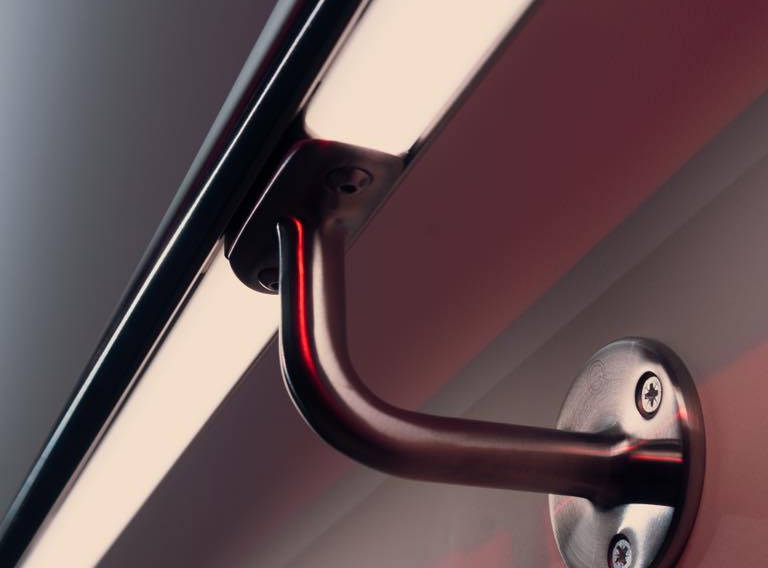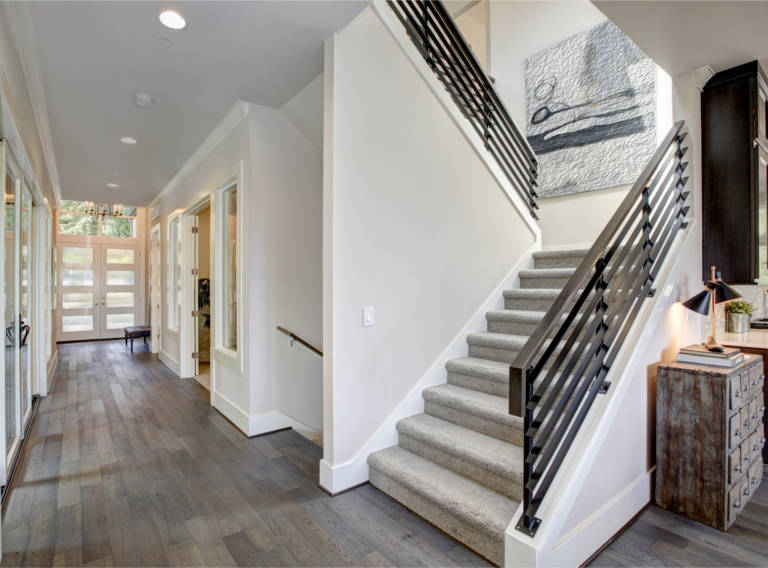How to ensure your staircase handrail installation is the correct height
Beautiful, elegant steel or wood handrails can provide an impressive finish to stairs, landings and hallways. But there is more to consider than just the aesthetics, with several legal requirements to be aware of when installing a new handrail on your staircase.
In the UK, there are strict guidelines in place to ensure every handrail meets safety regulations. Reputable construction workers should know the building regulations inside and out, but if you’re completing a home renovation project yourself, you’ll need to understand the relevant rules before you make a start.
In this article, we’ve outlined the key things you need to know about safe and compliant staircase handrail installation.
Staircase handrail installation: Safety regulations overview
It is a legal requirement in UK homes to have at least one handrail installed on a staircase. In some cases, you’ll need to install two. This depends on the width of the stairs, with a width of less than 1000mm requiring you have one handrail fitted and anything above this width requiring a second.
If a change in direction splits your staircase – for example, with a bullnose staircase – any part with two steps or less is exempt from requiring hand support. Your handrail needs to start wherever a flight of three steps or more begins.
The legislation forms a part of the Building Regulations 2010, which means any new builds or homes built after the ruling came into effect must comply. If your home was built before 2010 and is undergoing renovation with a handrail already fitted, that handrail may also need to be replaced.
Homes built before 2010 without a handrail are exempt, but it is still important to consider adding one as it will provide a base level of safety for people using your stairs.
Handrail height requirements
To be compliant, handrails must be fitted at a height between 900mm and 1000mm from the pitch line – a virtual line running diagonally between the right-angled area at the edge of each step.
A wall-mounted handrail relies on a bracket at each end to keep it in place. There are no set measurements for the distance between your brackets, although the longer the handrail, the more brackets you will need at intermittent points along the way for adequate support.
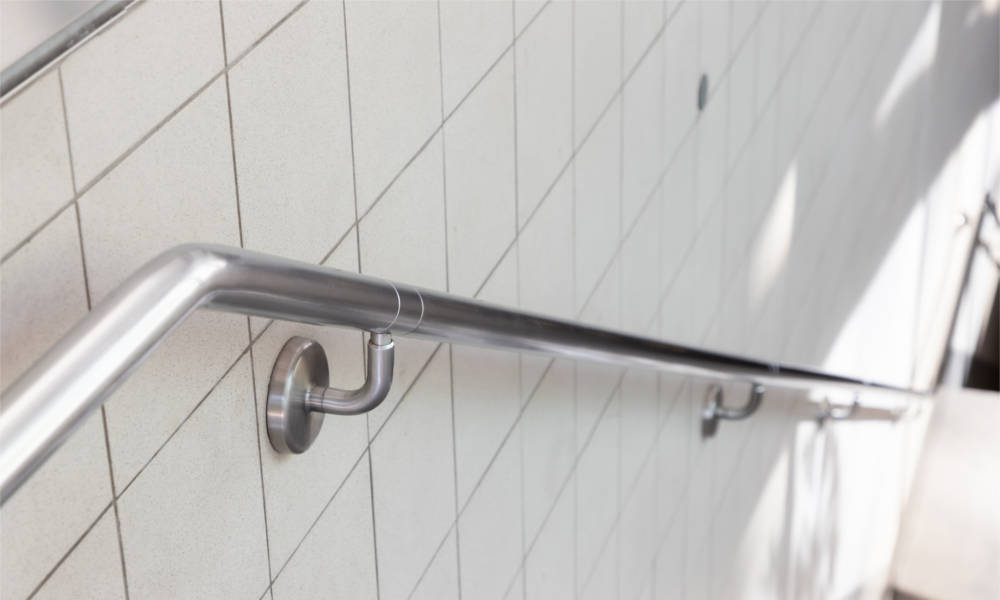
A side-note on steps
If your builder is installing a complete staircase with a handrail, they will have already considered the regulations around the steps themselves, which require a consistent height and depth from one to the next. However, if this is a DIY project, you must familiarise yourself with the rules before putting your staircase together.
Sizing regulations for steps in a residential setting differ from those situated in a public space. The following regulations ensure your stairs at home meet the correct measurements for safety:
“The Rise (the vertical section at the back of each step) cannot exceed 220mm in height, while the Going (the horizontal flat area we step onto) must be at least 220mm in depth.”
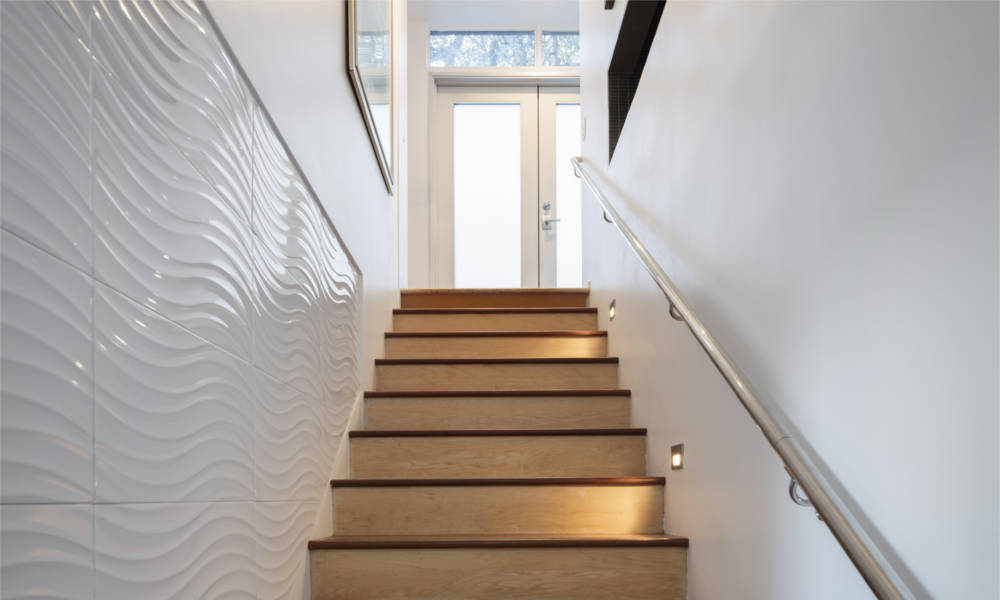
Your landing handrails
Safety at the top of the stairs is just as crucial as safety on the stairs, particularly where your home has a balcony overlooking a lower area.
As with a staircase, the handrail on a landing balcony has a height requirement of between 900mm and 1000mm to be classed as safe. Start your measurement from the floor upward to ensure the correct height for compliance.
If this is a replacement handrail on a landing that is already carpeted, you should roll back the carpet to uncover the floorboards, then begin measuring from there to assure accuracy.
To understand more about the regulations in the UK for fitting handrails refer to this paper on the Government website.
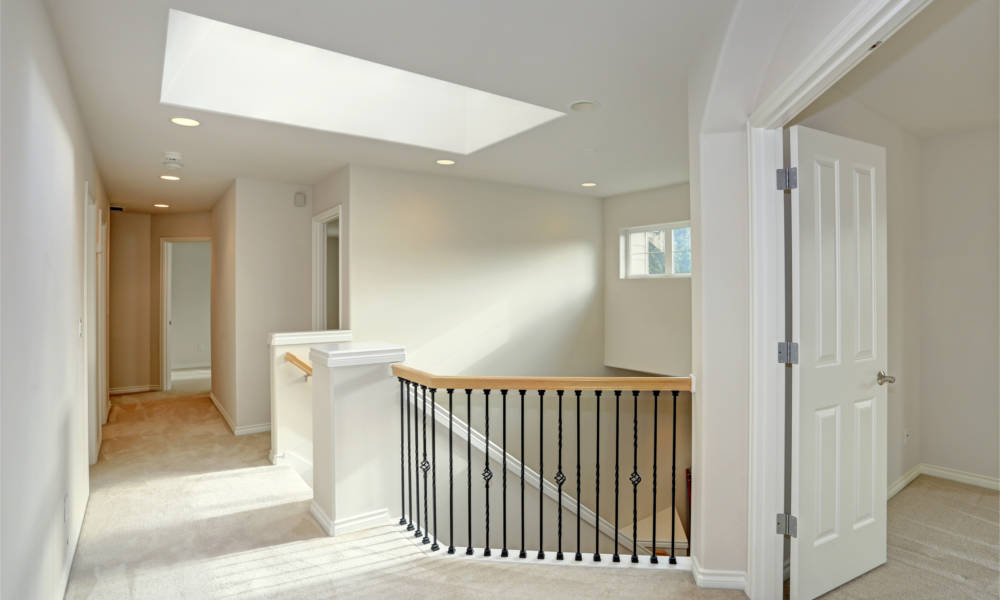
Now you know the rules on handrails, all that’s left to do is choose a style to suit your home. And if you need some inspiration, why not check out our handy guides:
Oak handrail installation ideas for your home refurbishment
Incorporate stainless steel handrails within your next design project
When it comes to handrails, you can trust the experts at LED Handrails. Our products are manufactured in the UK to the highest quality, installed to British Standards and always adhere to building regulations as appropriate.
Contact our team today to discuss your handrail project.

